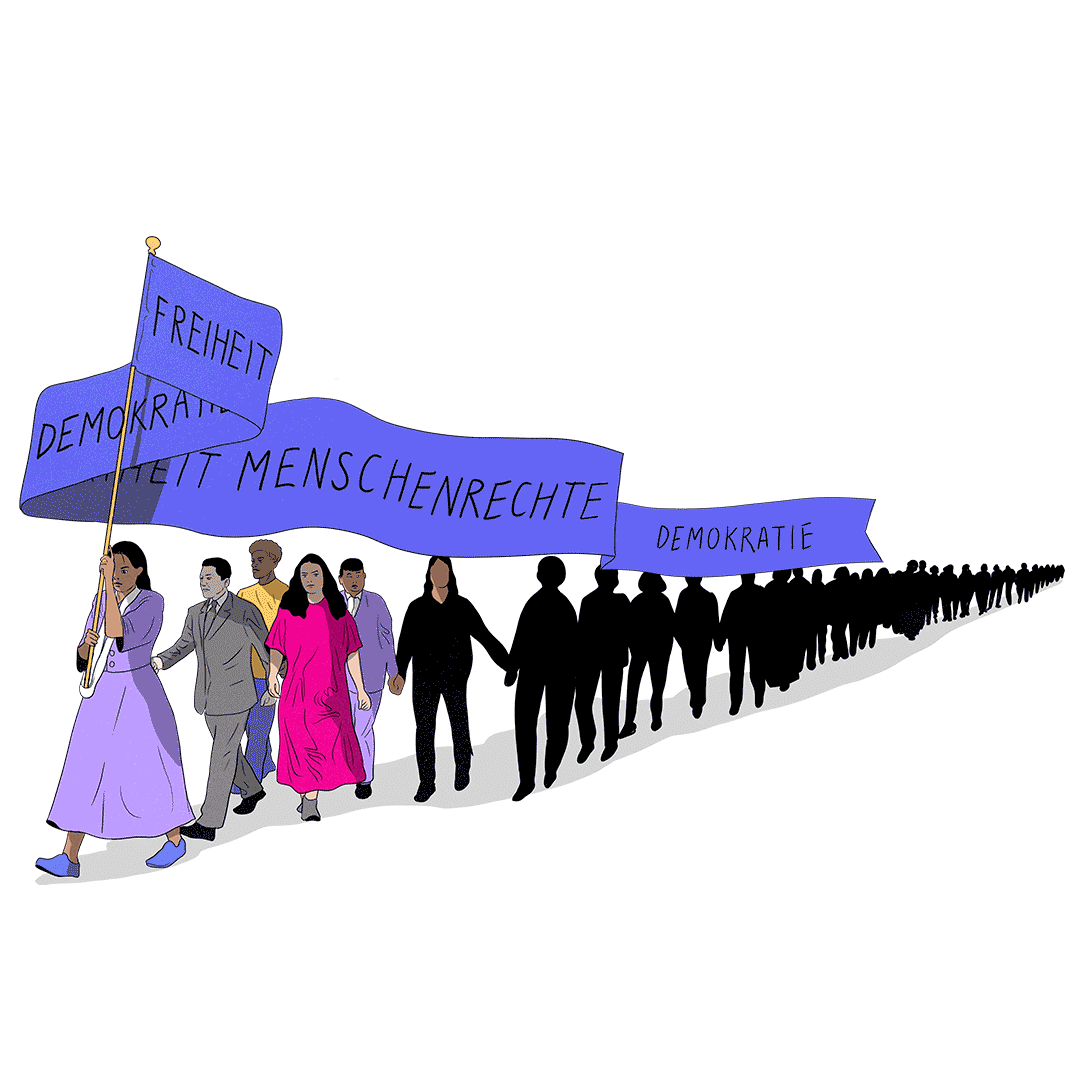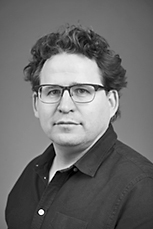THE GREAT REGROUPING OF THE WEST
Facing the light
The Russian attack on Ukraine marks a watershed moment comparable to 1989. Europe now has to protect freedom as if it were a delicate flower.
TEXT: WOLFRAM EILENBERGER
ILLUSTRATION: EMMANUEL POLANCO/SEPIA


THE GREAT REGROUPING OF THE WEST
Facing the light
The Russian attack on Ukraine marks a watershed moment comparable to 1989. Europe now has to protect freedom as if it were a delicate flower.
TEXT: WOLFRAM EILENBERGER
ILLUSTRATION: EMMANUEL POLANCO/SEPIA
What to do? It’s not the first time we have heard this question. However, it has become more pointed and urgent in the current climate, especially for the liberals of this country, continent, planet even. It is already apparent that we will look back on spring 2022 in a similar way to the autumn of 1989. It will be known as a watershed moment that brought the curtain down on a long held illusion.
The fall of the Berlin Wall marked the end of the state-socialist illusion that central planning and the continuous removal of freedom could constructively level out the difference between equality and justice. Russia’s attack on Ukraine marks the end of the liberal school of thought advocating a change in political values through intensive negotiation. Russia's attack on Ukraine marks the undermining of the liberal guiding dictum of a change in political values through closer trading ties, as does the commonplace terror in China, where the regime is now subjecting entire metropolises to camp logic of the type it has been perfecting for decades on the minorities at the periphery.
The end of a naive peace
The idea that growing global networking and mutual economic dependencies will bring us incrementally closer to the Kantian Realm of Ends, including Perpetual Peace, seems to be groundless. The once regulatory hope now seems like denying the obvious in everyday political proceedings. What remains after looking into the abyss, especially from a Central European perspective, is the shameful realisation that the dependencies are about as mutual as the military power is balanced. It makes for a bleak picture. In the 21st century, the continent of the Enlightenment is neither in a position to maintain its liberal model of life economically nor to defend it militarily – not to mention the ecological devastation that the past thirty years of growing global consumption have irreversibly entailed.
The younger generation of European politicians in particular – from Christian Lindner to Emmanuel Macron, from Annalena Baerbock to Sanna Marin, from Robert Habeck to Pedro Sánchez – may therefore see themselves in a situation depressingly similar to the one facing the hero of Voltaire's satirical 18th century novel Candide. Like Candide, who grew up in the sheltered environment of a princely castle, this parade of young Europeans imbibed the narrative of the best of all possible post-war continents with their mother's milk. The year of freedom 1989, in which the invention of the internet also opened up new, seemingly unlimited horizons, coincided with their formative youth and thus solidified the awareness of the possibility of a peaceful end to global history.
This world of soon to be 10 billion people can no longer be managed like an allotment garden anywhere.
This world of soon to be 10 billion people can no longer be managed like an allotment garden anywhere.
Fortified organic farmer
Today, as these well-travelled folk have become sufficiently aware of the misery of this world and have finally been shaken from their dogma-induced slumber by the geopolitical earthquake of the invasion of Ukraine, the temptation is obvious to rely primarily on a defensive logic of sustainable containment and isolationist self-preservation of one's own design. Just like the novel character Candide, who at the end of his world tour, thoroughly disillusioned, crawls away to an estate behind thick walls. There he replies to his old philosophical teacher Pangloss, who still sings the high song of globalisation to him at the table (“All events in this best of all possible worlds are necessarily linked to each other ... otherwise you wouldn't be eating preserved lemon peel and pistachios here now”): “All well and good, but we have to cultivate our garden.”
First cultivate your own garden – and protect it. Self-help before outside assistance, cultivation of the self before love for others far away, productive preservation of the soil before overburdening unbounded solidarity, local individual responsibility before fantasies of global control: these are all too understandable, even primal liberal intuitions. In the mind's eye, a defensible organic farmer appears as a contemporary guiding figure of the European Enlightenment – if only it weren't for the naturalistic image of the flourishing “garden”, which alone makes a mockery of any thought of a resilient focus on one's own self-contained spheres of influence.
If for no other reason than the necessity to chemically bolster the increasingly dry and depleted domestic soils; and primarily with nitrogen fertiliser from Ukraine, particularly energy-intensively produced with Russian gas. It is also true because it is precisely this rural-rooted type of character that is the first to go to the barricades when energy prices rise, in order to question the inherent, universal guiding values of freedom, equality and fraternity with a wielded pitchfork to show their revolutionary fervour.
With all due understanding for pent-up anger and newly experienced fears: this world of soon to be 10 billion people cannot be managed, pruned back or even walled back to a liveable size anywhere. From an enlightened perspective, it is precisely the ecological challenges in our 21st century that will remove the basis for any continental or civilisational desire for autarky in the foreseeable future. Likewise, any fantasy that the prosperity of one's own country and its values can be protected in the future with weapons and walls alone can be exposed as a desiccated phantasm of past centuries. This world will be one garden – or nothing at all. Under the given conditions on this planet, there is no national liberalism and not even a viable continental liberalism.
For enlightened thinkers of the future, it is therefore again time to cultivate an attitude of hope that is markedly situated between Pangloss and Candide. An attitude is needed that does not replace faith in an all-powerful and all-merciful God with a self-indulgent, world-healing market drive and that does not merely result from a thorough disillusionment with political allotment garden dreams à la Candide.
In the manner of the cleverest and most agile plants, it means always remaining turned towards the light.
In the manner of the cleverest and most agile plants, it means always remaining turned towards the light.”
Keep the feelers out
Rather, in the manner of the cleverest and most agile plants, it means always remaining turned towards the light, keeping one's own feelers outstretched in all directions. Generally speaking, it is important to understand oneself as part of a global network of life that will be characterised by special resilience precisely because of its inner diversity. Modern freedom may remain a delicate flower, but so far it has been able to undermine every wall and overcome every attack, even in the darkest hours.

Wolfram Eilenberger is a philosopher and writer. His book “Time of the Magicians: The Great Decade of Philosophy, 1919-1929” was awarded the Bayerischer Buchpreis. Klett-Cotta, 25 euros.

Wolfram Eilenberger is a philosopher and writer. His book “Time of the Magicians: The Great Decade of Philosophy, 1919-1929” was awarded the Bayerischer Buchpreis. Klett-Cotta, 25 euros.
Also interesting
Theresa Caroline Winter // „Ein Zeichen an die Despoten senden“
Marie-Agnes Strack-Zimmermann, FDP, hat als Vorsitzende des Verteidigungsausschusses offensiv das Zögern der eigenen Koalition bei Waffenlieferungen an die Ukraine kritisiert. Hier fordert sie auch klare Worte in Richtung Teheran und Peking.
Guri Melby // Gewaltige Anziehungskraft
Der russische Präsident hat sich eine NATO-Osterweiterung im hohen Norden eingehandelt. Der zu erwartende Beitritt Schwedens und Finnlands zur Allianz bietet den nordischen Ländern eine Fülle neuer Chancen.
Alexander Görlach // „Wir haben die Chance, eine neue freie Welt zu erschaffen“
Thomas Weber, Professor für internationale Politik, fordert eine Neu-Orientierung des „Westens“: Wir müssen stärker mit den Demokratien in Asien und im globalen Süden kooperieren – etwa mit Freihandel, bei der Energieversorgung und im Kampf gegen Armut.
